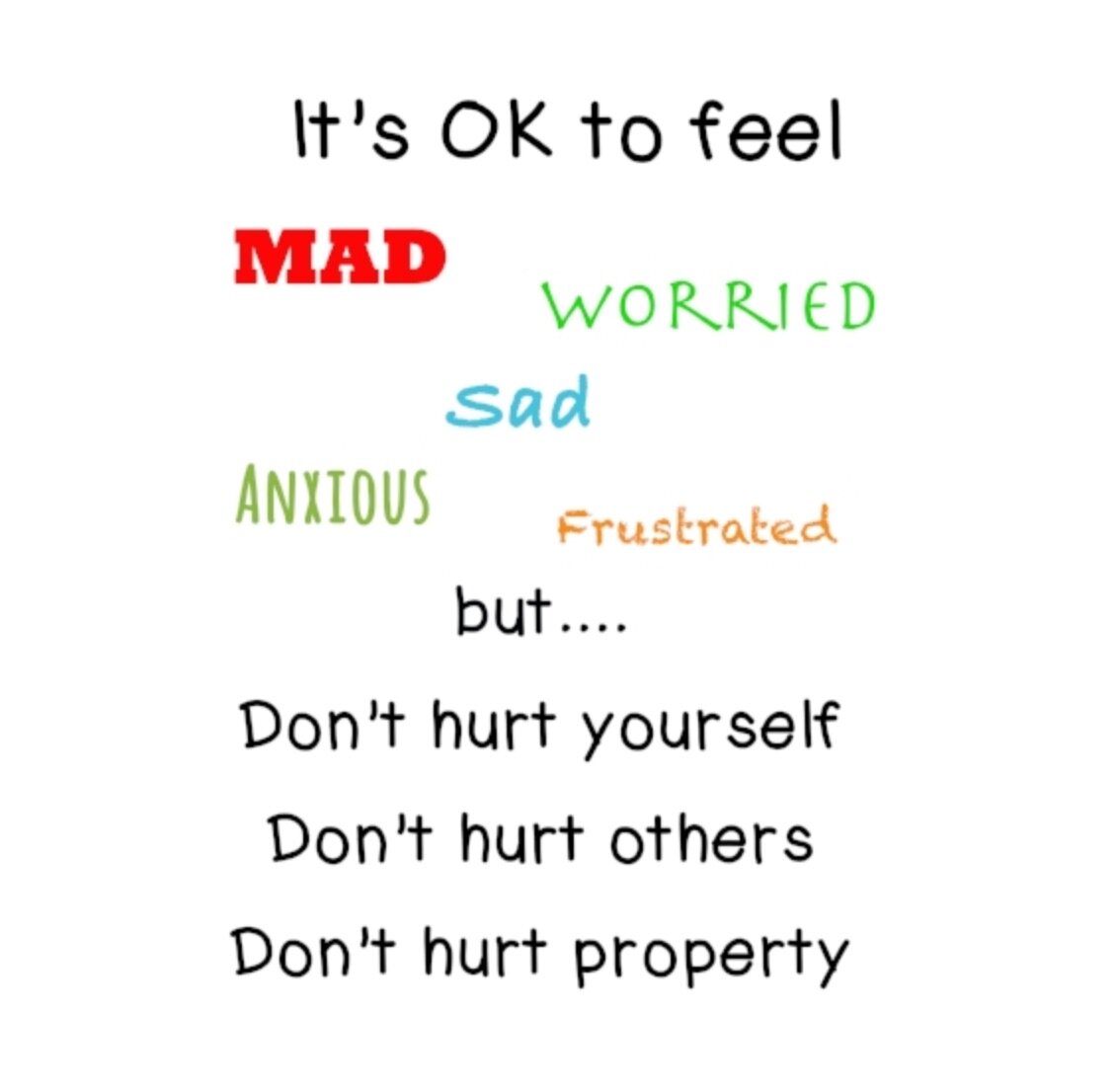
Start by talking about what’s making them angry. Help them identify those triggers, so you both know for the next time. Is it a particular school subject that makes them frustrated? Perhaps being hungry or thirsty? Are their specific noises or locations that are frustrating?

Sometimes, kids don’t know they’re angry until after the explosion has happened. Help them identify the signs their body gives them that they are feeling angry. Over time, they’ll start to recognize that feeling and ideally use a coping skill before things get too overwhelming.
Explore other emotions too:
When kids are angry, there are usually other feelings that they are experiencing too. But anger is easy to see and often hides different feelings that lie below the surface. It’s sometimes referred to as the “Anger Iceberg.” It takes a bit of time to figure it out, but when your child is in a calm place, talk about what other feelings may be hiding underneath their anger.

Identify coping strategies
Now that they know what causes those big feelings and how to identify them, help them figure out ways to deal with those feelings in safe and healthy ways. Go through the coping skills checklist and have kids check off the skills that work for them, cross off the ones that don’t and circle the ones they want to try.
Identify one coping skill your child would like to try. Take a few minutes during the week and have them practice a coping skill they may be able to use next time. For example, if they are going to try using shapes for deep breathing, have them practice before, so they know how it feels. The idea is to have them practice, so they know what it feels like to do it when they are calm.

Using a feelings thermometer can also help kids make the connection between their feelings and their coping skills.

Phrases that you can say at that moment:
“I’m here for you.”
“I love you.”
“I want to help you.”
“Let me know when you’re ready.”
“You are mad; I get it.”
“I understand.”

